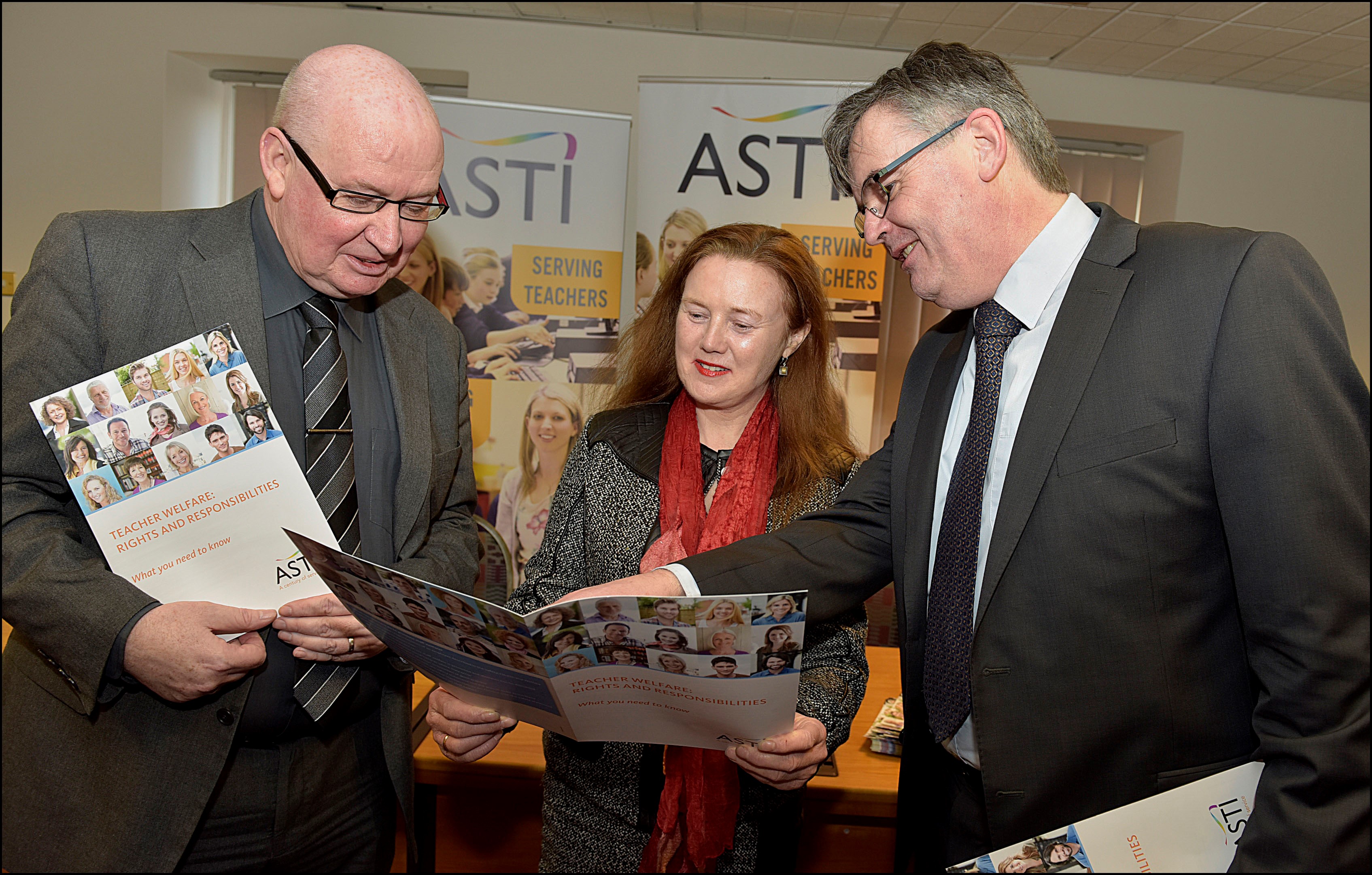Psycho-social hazards are largely ignored, despite the fact that they’re “the greatest threat facing teachers during their working lives”, noted ASTI President Ed Byrne, at the launch of the ASTI’s information leaflet ‘Teacher Welfare: Rights and Responsibilities’.
Byrne said it’s well established that “teaching is one of the most stressful and psychologically demanding professions”. He added that teachers are more exposed to psycho-social hazards for a number of reasons, such as the emotional demands in dealing with the diverse needs of large numbers of young people, their parents and guardians, and the lack of professional mobility in teaching.
The leaflet aims to create a greater awareness amongst teachers, school leaders/managers and others in the education sector of the employer’s role in identifying and addressing these hazards.
“Left unaddressed they can lead to low morale, sleeping problems, absenteeism and major illnesses such as depression and cardiovascular disease. These symptoms are the result of unhealthy work systems. The solution lies not with the individual teacher, but at system level,” noted Ed Byrne.

Pictured at the launch of the ASTI booklet: Ed Byrne, ASTI President, Annette Dolan, TUI and John Irwin, ACCS.
The ASTI information leaflet states that “employers are legally obliged to produce a safety statement, which should incorporate issues such as implementing measures in keeping with the general principles of prevention outlined in the Safety, Health and Welfare at Work Act, ensuring a workplace emergency plan/critical incident policy is in place, and ensuring the safety statement is reviewed at least annually and is easily accessible”.
Recent data from the Department of Education and Skills shows that psychiatric illness is the number one reason why teachers retire early on ill health grounds. “Teacher wellbeing is inextricably linked to the quality of teaching and learning in our schools. Teachers need to be supported so that they can best support their students.”